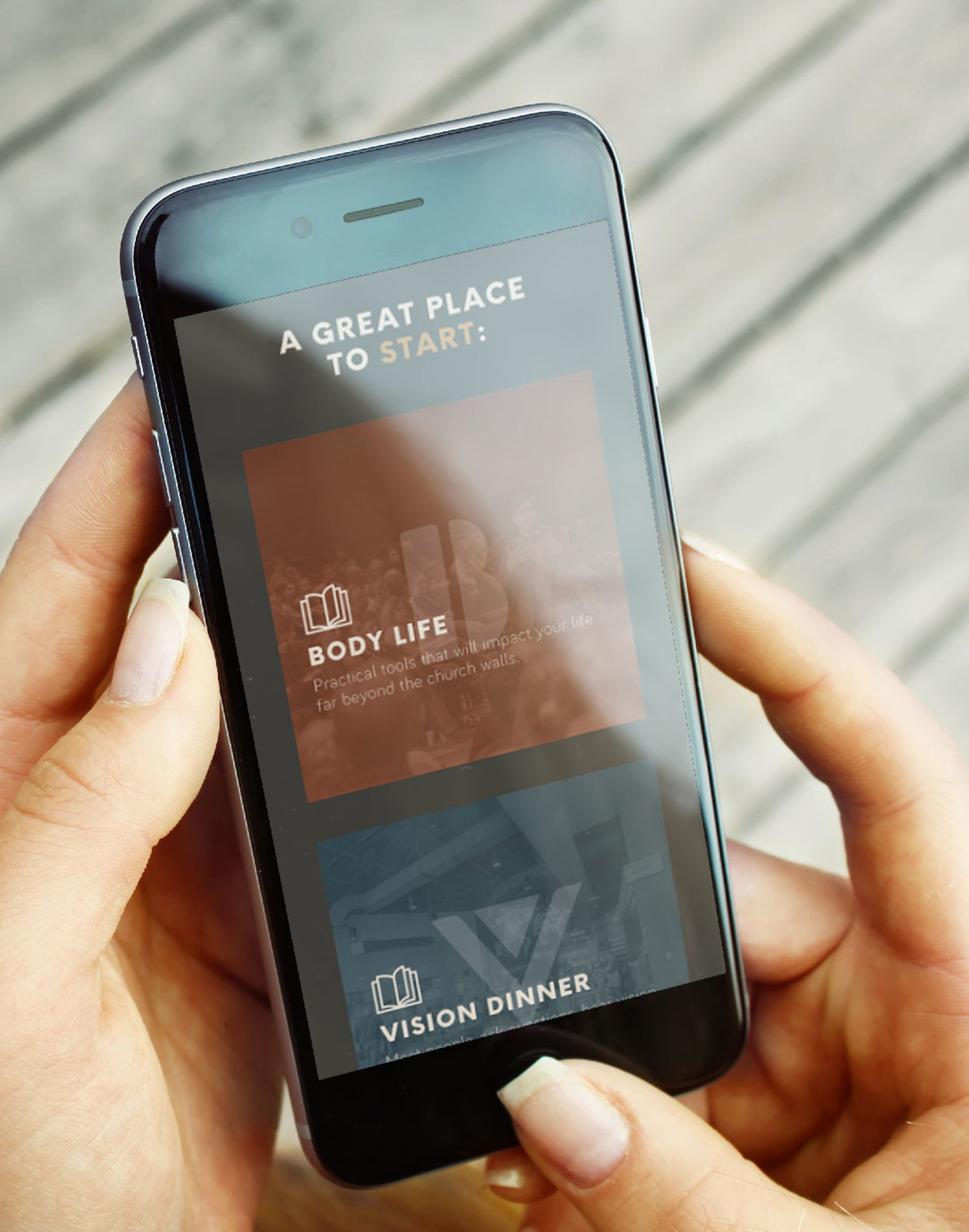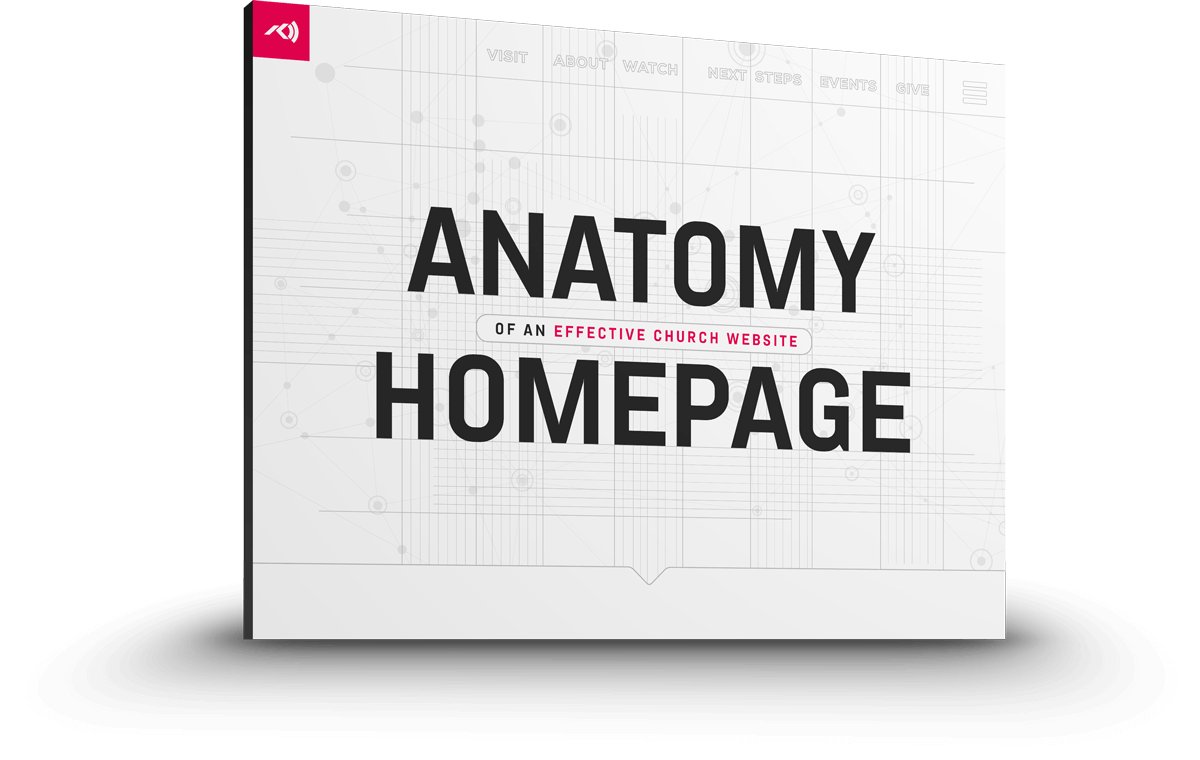Make it easy for people to share their story.
These are some simple ideas that we just haven’t been seeing in all of the church websites that we see out there, very rarely, anyway. And number one, to jump right into it, you should have an opportunity for people to share their story on your church website because there’s so much power in someone’s story. We find that is a challenge for churches everywhere to capture these stories, if they’re even thinking about that. They should be, because how do we overcome? By the word of our testimony, right? You want to make it as easy as possible for people to share the story of what God is doing in their life. So it’s as simple as adding a form on your website. I would say that there are some important points to consider: You might wanna make it allowable for it to be totally anonymous. Maybe they’re not ready to put their name behind it, but they want you to know that God is pulling them out of alcoholism.
So good. People wanna be known. I mean, the truth is, you’d probably be surprised at how many people that you’re already influencing would volunteer even some pretty intimate heart issues because they are seeing victory. Not only do they want to champion what you’re doing, but they also want to be known. People have that deep desire, you have that desire. You want people around you to know you. This is what I’m like, this is where I’m coming from, and this is where I’m headed, and now you’re giving them a platform that they may not ever, ever have but now you’re giving them a platform to tell their story, just think of how many likes and comments and shares that story’s gonna get. They’re gonna share it and now all their friends get to see this transformational story that well you’re telling it but it’s theirs and they’re trusting it to you.
And in fact, you as a church leader might be aware of the good things that are happening in your church but there’s a good chance that most people sitting out there in the seats have no idea the impact, the good things that are happening throughout the church, unless you’re talking about it on Sunday morning, they probably don’t know but that’s so powerful for them to see, wow, I served in kids to make this happen and this is happening and this is happening, I’m making a difference. Now you’ve just empowered your servers, your volunteers.
It could as easy as a form, right? Then a form submission that comes in, your team can screen. I think a next level on this, and I have seen even recently, some doing this, is setting up a small studio in the hallway, if you’ve got a camera, you’ve got a video, and start videoing some of those stories. Obviously right there you’re getting permission but not only are you allowing that to happen on the website where people could actually type in their story and before it’s posted you could have final word on whether it was appropriate or not, but you could also help tell that story well. Some of you watching have awesome production teams. You could really champion that story and tell it really well.
Yeah, and so through the form, you might get a wide selection of these stories, you might choose some. Hey, let’s go contact this person, ask if they’d come in and do this on video or be willing to share more about this story.
So number one, share your story page. You need to share your story page. I love this next one, number two…
Be an answer to someone’s question.
Number two: your website is an opportunity to be an answer to someone’s desperate question. You could imagine the person at 3 AM in the morning, sitting down at their computer and typing in the words, “Is God real?” or “How do I save my marriage?” and if you have a page on your site, called Is God Real? How to Save Your Marriage full of good content, doesn’t even have to be your original content.
No, you don’t even have to write it. In fact, smarter people, no offense, have already done it, right? Like Josh McDowell, Focus on the Family — I mean, you have so many resources. We live in a time where that is available to you. All you have to do is compile the ones that you love, the ones that you agree with but what I love about this idea is isn’t that what we want to be? Don’t we want to be that lighthouse? Don’t we want to be those hope dealers? Those that have the answer for today’s society when it’s struggling? And there are people struggling and right now, they’re turning to Google to find the answer and when they do, they could find you.
And so, if you are on Google My Business, you’re registered, Google knows that you’re a local business.
If you haven’t, if you’re not, then get on Google My Business and get registered.
Get on the Map
Absolutely, that’s totally free. That’s what puts you on the map, by the way. You wanna be on Google Maps? You do! Go register on Google My Business. Fill that out, fill out the profile, get some good pictures up there, but then someone local is searching for that, Google knows you’re local and maybe you go into Google Ads and you put a few dollars on that search. There’s a good chance they type that in and you pop up as the first result for them.
Show up where they least expect it…but most need it.
You wanna hear like an entirely higher level, or lower, I don’t know, but we’ve heard of a church, national influence, they were doing that, paid ads for those in their city when people searched for terms like pornography, or how to commit suicide, some of the terrible searches that are out there. They wanted the people that were searching for all of the terrible stuff the internet has to offer to see an advertisement for their church. Not just people searching for church, not just people searching for God, but people looking to escape and then for some of them, maybe that would be the lifeline and then that link wouldn’t just take them to a home page of a website but it would take them to a very specific, they knew exactly why they clicked on it, they knew what they were searching for, and now, they can help bring hope and life and truth right into somebody’s life who now, has changed their mind because they clicked the ad. They thought, “You know what, they’re right. I don’t need, well, this might be God interrupting my path. I wonder what hope is here.”
I love that opportunity that we have just using the technology that’s available, to step into that story right at that critical moment and give someone an opportunity to go a different way that maybe their heart already knew. “That’s what I really should do.”
Be strategic about where they land.
So the last thing we wanna talk about is what happens after they click that, right? So, share your story, key issues, however many you want to deal with there. Number three: landing pages.
I mean, maybe you’ve heard the term “landing pages” a lot. Maybe you’re not quite sure what that means. I mean, the very simple definition: it’s just the page that you land on when you click a link. But this is different than say, you did an ad and it just sent people to your home page of your church. Well, that may not answer their question. That may not be relevant to the ad they clicked on. So this is true whether you are using that page to answer the question, you know, they just searched for “How do I save my marriage?” They should land on a page that actually answers that question and talks all about that without distracting them with everything else that you might have that you might want them to know about but now’s not the time.
Or even if you’re doing a new message series, or you have Easter coming up or Christmas, and you’re doing ads and you’re out there promoting those ads, a landing page, instead of just sending them to the home page, could become a really great tool because when they go to the home page, it might not just be that they get disconnected, they might just get distracted. Now all of the sudden they’re not thinking about that upcoming sermon series or visiting this coming weekend, they’re looking at your staff page and they’re watching old messages and they’re in your belief section and all of the sudden they forgot why they were there or they ran out of time and there wasn’t really the follow through on the next steps for connecting them from being very interested in visiting to now, they just got lost in the noise of your entire site. So, setting up a landing. Kirk, just take us through what a simple landing site, an effective, simple landing page can and should look like.
Well, I think simple is a key word. You want to eliminate all the other distractions. In fact, often, a landing page will get rid of the whole menu bar, it’ll get rid of everything that you’ve got down on the footer, cause you don’t want to distract them with other links. You want them to follow you down this page and you want to be as clear and as simple as possible. I like what they talk about with StoryBrand and his advice for websites, you’ve gotta pass the caveman test. If they can’t tell what you’re trying to talk to them about then you’ve lost, and so right from the get-go, talk to them about what this is. The header should be clear, the introductory text should be very simple and clear. This is what this is. Speak directly to that without pushing them off to “Hey, here’s our upcoming events and here’s watch a message.” Unless that’s relevant to what you’re talking about and then to finish all that up with a clear call to action. Here’s the next thing to do. That could be come on Sunday. Now that’s tough because that’s not something that they can do right now. Ideally, you could give them some action step to take right now, right in the moment, right while they’re here. I love anything that you can come up with that would give them a chance to do something now, even if that’s fill out a form, say, “Hey, I’m coming on Sunday.” Now they’ve made a commitment. They’ve told somebody, “Hey, I’m gonna be there,” and they’re gonna feel bad if they don’t.
Could be download a resource that was based on either the topic that’s coming up that you’re teaching on or one of those Google searches that we talked about. So those are three things that we see that really church websites could be doing and so many of them aren’t. Once again, that’s share your story, a page about key issues, and also just thinking through landing page strategy really for anything and everything that you’re doing. Here’s our question: what are you doing? What is it that you’re doing? Maybe you’ve got another insight, another idea or an upcoming event. We’d love to hear right now, that’s our call to action. Follow along, but you can also comment along right now, and say, “Hey, here’s what we’re up to. Here’s another idea,” and man, that conversation can get contagious. Feel free to steal any ideas that are in the comment section and be a part of the story. Share your story, how God’s using you as it comes to communicating this message and your mission via all the online tools, but be a part of the story and we’ll look forward to hearing what you’re doing.



